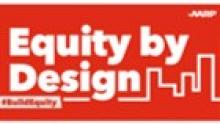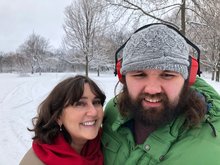Found 60 resources.
0
0
0
Research suggests that two-generation (2Gen) approaches can help interrupt the economic and social barriers to many families’ economic mobility and increased well-being and carry long-term benefits. Child Trends – in partnership with Ascend at the Aspen Institute – conducted new analyses for this report, which provides a current data snapshot of some of the families in the United States who may be eligible for and benefit from 2Gen supports and services. Policymakers, researchers, and program evaluators should pay attention to these same data points in efforts to assess families’ needs and...
Topics: Advocacy, Dual-generation, dual-generation initiative, Low-income, Mobility
 Shared by Molli Caite Hughes
on Jan 18, 2024
Shared by Molli Caite Hughes
on Jan 18, 2024 0
0
0
Marjorie Sims, Sarah Haight
January 2024
Focused on the 23,306 young parents (ages 18 to 24) and their families in New Mexico, this report provides a framework for organizations in New Mexico to collaborate more effectively and offers a plan of action to assess these efforts and strengthen impact for families.
This publication aims to deepen understanding about the demographics, aspirations, and needs of young parents; highlights practices and policies aligned with a two-generation (2Gen) approach; showcases opportunities to streamline this work by forging connections between...
Topics: Child welfare, Dual-generation, dual-generation initiative, Early childhood, Family engagement, Healthy homes, Housing
 Shared by Molli Caite Hughes
on Jan 18, 2024
Shared by Molli Caite Hughes
on Jan 18, 2024 0
0
0
Homelessness and child welfare system involvement pose substantial challenges for families, but supportive housing can help them stay together and access secure housing.
Topics: Advocacy, Dual-generation, Healthy homes, Homelessness, Housing, Low-income, Stability
 Shared by Molli Caite Hughes
on Nov 15, 2023
Shared by Molli Caite Hughes
on Nov 15, 2023 0
0
0

Play is not only beneficial but essential for people of all ages. Today, there is increasing interest in the benefits of not only play itself, but specifically people from younger and older generations playing together. The built environment in our communities plays a critical role in facilitating this intergenerational engagement and play. Approaches such as Intergenerational Contact Zones (ICZs) introduce strategies for promoting social inclusion and belonging, employing novel ways of planning and designing public spaces to create intergenerationally enriched environments that provide...
Topics: Community development, Dual-generation, Exercise, Health, Seniors, Youth
 Shared by Sandra Ware
on Jun 8, 2023
Shared by Sandra Ware
on Jun 8, 2023 0
0
0

Every May, Ascend recognizes the importance of raising awareness about mental health and the multifaceted ways that it impacts family prosperity and well-being. Even as Mental Health Awareness Month comes to a close, we are committed every day to uplifting the drumbeat across our community that calls for an end to mental health stigma, making strides to ensure that families can access quality services, and advocating for policies that support families' unique mental health needs.
Join us in the national movement to raise awareness about mental health by exploring some of our new...
Topics: Depression, Dual-generation, Education, Legislation & Policy, Mental health, Research
 Shared by Sandra Ware
on Jun 1, 2023
Shared by Sandra Ware
on Jun 1, 2023 0
0
0
Child poverty is an urgent and preventable crisis. Solutions to child poverty already exist if we just expand and invest in them. Benefits like nutrition assistance, housing vouchers and tax credits helped lift nearly 7 million children out of poverty in 2017, but millions of children were left behind due to inadequate funding, eligibility restrictions and low wages. We can and must fix these problems to help more children escape poverty now.
Topics: Child welfare, Dual-generation, Early childhood, Food insecurity, Funding, Housing, Legislation & Policy, Low-income, Research, Workforce development
 Shared by Housing Is
on May 28, 2019
Shared by Housing Is
on May 28, 2019 0
0
0

Early childhood education programs can impact life outcomes in ways that span generations, according to new research from Nobel laureate James Heckman. In a pair of companion papers released this week, the pioneering University of Chicago economist found that the children of those who participated in a landmark 1960s study still saw improvements in education, health and employment. The children saw such benefits without participating in the same preschool program as their parents—suggesting that early education can contribute to lasting upward mobility and help break cycles of poverty
Topics: Child welfare, Dual-generation, Early childhood, Family engagement, Research
 Shared by Housing Is
on May 21, 2019
Shared by Housing Is
on May 21, 2019 0
0
0

When following the mother–child pair from pregnancy through five years postpartum, the estimated cost is $14.2 billion for births in 2017, or an average of $32,000 for every mother–child pair affected but not treated.
Topics: Dual-generation, Early childhood, Mental health, Pre-natal, Research
 Shared by Housing Is
on Apr 30, 2019
Shared by Housing Is
on Apr 30, 2019 0
0
0
Education Design Lab taps four large community colleges in an ambitious effort to raise single-mother completion rate 30 percent at each institution by 2024.
Topics: Dual-generation, Early childhood, Family engagement, Low-income, Metrics, Post-secondary
0
0
0

Founded in 1995 as Project Women, Family Scholar House (FSH) provides comprehensive, holistic services for disadvantaged single parents, their children, and foster alumni. The nonprofit seeks to end the cycle of poverty and transform communities by empowering families and youth to succeed in education and life-long self-sufficiency. FSH provides supportive housing, educational programming, and participant advocacy to help families gain independence.
Topics: Dual-generation, Early childhood, Education, Homelessness, Housing, Low-income, Partnerships, Place-based, Post-secondary, South, Stability
0
0
0
With 22 percent of the undergraduate student population comprised of parents, policymakers and institutions must explore the unique needs of this population and address the challenges that may prevent parents from attaining their degree. This includes determining what systems, services, and approaches best support their mental health needs. This brief examines opportunities for policymakers and academic institutions to adapt existing mental health services in order to meet the unique needs of students who are parents and help them complete their degree.
Topics: Dual-generation, Early childhood, Mental health, Post-secondary
0
0
0
Investments in the postsecondary success of parents with young children can increase attainment of credentials leading to good jobs, bring children the benefits of high-quality learning environments, promote later college-going among children, and improve family economic security across generations. This factsheet provides figures on the student parent population based on the latest National Postsecondary Student Aid Study data.
Topics: Dual-generation, Early childhood, Post-secondary, Research, Youth
0
0
0

Managing director of Ascend at the Aspen Institute discusses the role of women in public health policy-making
Topics: Dual-generation, Early childhood, Family engagement, Mental health, Pre-natal, Research
0
0
0
Resources from Ascend at The Aspen Institute
Topics: Asset building, Child welfare, Dual-generation, Early childhood, Family engagement, Research, Youth
0
0
0
Federal safety net programs are intended to protect the most vulnerable Americans—such as the elderly, people with severe disabilities and young children. Housing assistance plays a critical role in the safety net, providing decent, safe, and affordable housing for millions of extremely low-income and vulnerable families—though, because it is not an entitlement like other federal safety net programs, the assistance available falls far short of the need. Housing subsidies free families to spend on other essentials like healthy food, education, and health care.
Topics: Asset building, Dual-generation, Education, Housing, Mental health, Mobility, Partnerships, Research, Workforce development
 Shared by Housing Is
on Apr 2, 2019
Shared by Housing Is
on Apr 2, 2019 0
0
0
Released bi-monthly, each issue of the ZERO TO THREE Journal focuses on a critical topic within the early childhood development field. Journal articles are carefully composed to present current knowledge, latest research, and practical advice to help early childhood professionals do their best work in support of infants and toddlers.
Topics: Child welfare, Dual-generation, Early childhood, Homelessness, Housing, Low-income, Research, Safety
0
0
0
Democrats this week announced new legislation that would slash child poverty by paying low-income parents the kind of monthly allowance that is standard in other developed countries. But the lawmakers who introduced the bill, called the American Family Act, didn’t use the terms “child benefit” or “child allowance” at their Capitol Hill press conference Wednesday. Instead, they all called it a tax credit or a tax cut.
Topics: Child welfare, Dual-generation, Early childhood, Funding, Legislation & Policy, Low-income, Research
 Shared by Housing Is
on Mar 12, 2019
Shared by Housing Is
on Mar 12, 2019 0
0
0
The strengths and abilities children develop from infancy through adolescence are crucial for their physical, emotional, and cognitive growth, which in turn help them to achieve success in school and to become responsible, economically self-sufficient, and healthy adults. Capable, responsible, and healthy adults are clearly the foundation of a well-functioning and prosperous society, yet America’s future is not as secure as it could be because millions of American children live in families with incomes below the poverty line. A wealth of evidence suggests that a lack of adequate economic...
Topics: Child welfare, Dual-generation, Legislation & Policy, Low-income, Research
 Shared by Housing Is
on Mar 1, 2019
Shared by Housing Is
on Mar 1, 2019 0
0
0
In the summer of 2018, Ascend gathered more than two dozen state and national policy experts and other leaders in the fields of health and early learning at its Aspen Meadows Campus in Aspen, Colorado, to discuss the growing opportunity to leverage the 2Gen approach at the state level and determine how best to take promising new innovations to scale. This report offers a snapshot of specific things federal, state, and local leaders can keep doing, start doing, or stop doing to remove barriers and accelerate success.
Topics: Dual-generation, Early childhood, Family engagement, Legislation & Policy, Research
 Shared by Housing Is
on Feb 15, 2019
Shared by Housing Is
on Feb 15, 2019 0
0
0
During CLPHA’s Education Working Group Webinar on addressing school attendance at PHAs, representatives from the King County Housing Authority and the national nonprofit Attendance Works presented on tools for addressing chronic absenteeism, as well as strategies for fostering a culture of attendance among residents.
Topics: Attendance, CLPHA, Dual-generation, Education, Housing, Housing Is Working Group, Low-income, Metrics, Partnerships, Place-based
 Shared by Housing Is
on Feb 12, 2019
Shared by Housing Is
on Feb 12, 2019 0
0
0

For a very young child, the relationship with a primary caregiver, most often though not exclusively a mother, lays an important psychological foundation for later flourishing. Successful attachment and bonding in the first two years of life predicts healthy later development on a range of fronts, from mental health to educational skills. When bonding and attachment prove difficult, child development is affected. Recent advances in brain science allow this impact to be shown more clearly and more definitively.
Topics: Child welfare, Depression, Dual-generation, Early childhood, Health, Low-income, Mental health, Mobility
0
0
0
Times are changing rapidly for families—our households, work and the workforce do not look like they did just a decade ago. Challenges and barriers for parents continue to grow – skyrocketing costs of health care and child care, lack of flexibility at the workplace, and less time at home. Working parents have to balance their budget and time across an ever-changing landscape of needs: from caring for themselves, their children, and older family members, to affording quality child care and paying household bills. Removing barriers so families can care for their loved ones requires us to...
Topics: Child welfare, Dual-generation, Early childhood, Family engagement, Health, Legislation & Policy, Low-income, Preventative care
0
0
0
A Summary of Results from the MIHOPE and MIHOPE-STRONG Start Studies of Evidence-Based Home Visiting
A healthy birth and positive experiences in early childhood can promote health and development. One approach that has improved outcomes for children and their parents is home visiting, which provides individually tailored support, resources, and information to expectant parents and families with young children. This brief summarizes recently published reports from two national studies of evidence-based early childhood home visiting: the Mother and Infant Home Visiting Program Evaluation (MIHOPE) and MIHOPE-Strong Start.
Topics: Child welfare, Dual-generation, Early childhood, Home visiting, Metrics, Partnerships, Place-based, Preventative care, Research
0
0
0

Housing complex would integrate residents with special needs into the larger community
Topics: Disabilities, Dual-generation, Housing, Mental health, Place-based, Safety
 Shared by Housing Is
on Jan 31, 2019
Shared by Housing Is
on Jan 31, 2019 0
0
0

A D.C. housing development serves as a refuge for grandparents raising young children. Is it a model for the rest of the country?
Topics: Child welfare, Dual-generation, East Coast, Family engagement, Low-income, Place-based, Seniors, Stability, Youth
